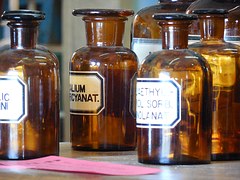Since Vedic times, Ayurveda had been the principal medicinal practice followed in India. Up until the Indian independence in 1947, the country did not recognize the profession of Pharmacy. In 1948, the Pharmacy Act was enacted as the nation’s first minimum standard of educational qualification for pharmacy practice to regulate the practice, education, and profession of pharmacy.
As far as pharmacy education is concerned the growth has been significant in the last decade. The basic courses offered in India are: D Pharm (diploma in pharmacy), B Pharm (bachelor of pharmacy), M Pharm (master of pharmacy), MS [Pharm] (Master of Science in pharmacy), and PhD (doctor of philosophy in pharmacy.
The D Pharm program is currently offered by nearly 1000 institutions across India. It is a 2 year of introductory course in all the disciplines of pharmacy including pharmaceutics, pharmacology, pharmaceutical chemistry, or pharmacognosy. This is followed by 500 hours of required practical training in a government hospital or primary health center. A 10+2 degree is required for pursuing diploma in pharmacy course.
The B pharm program is a 4 year detailed course in all the disciplines of pharmacy followed by an industry practical training for 2 months. Students holding a B Pharm degree can earn an M Pharm degree in 2 years, of which the second year is devoted to research leading to a dissertation in any pharmaceutical discipline, for instance pharmaceutics, pharmacology, pharmaceutical chemistry, or pharmacognosy. Recently, M Pharm programs on industrial pharmacy, quality assurance, and pharmaceutical biotechnology have been introduced.
Regulation
The pharmacy education is currently regulated by Pharmacy Council of India (PCI) and All India Council for Technical Education (AICTE). PCI is mainly responsible for framing the minimum education criteria for issuing licenses to practice pharmacy. It mainly regulated the D pharm program and recognizes the B Pharm institutions. It has no jurisdiction on M pharm and other high degree programs.
Concerns
1. The whole pharmacy education system in India is product oriented as against patient oriented. A modern pharmacist in developed nations does more than just dispense drugs. A pharmacist’s role in patient care and counselling regarding treatment regimen and judicious use of prescribed medicines is not paid much heed by the current pharmacy curriculum in India.
2. The curriculum of the D Pharm program was last revised in 1991 and significant no. of concepts are out dated and of little relevance in today’s industry.
3. For B Pharm program there is no standardized syllabus available. It varies across university which poses a challenge on employability aspects. The curriculum is decided at university level and there is a minute focus on areas like patient care and behavioral & social sciences.
4. The curriculum is not sufficient to provide international recognition to India’s pharmacy youth.

Jitu is Co-Founder of Mantras2Success. He has Engineering & MBA degrees to his name, along with 10+ years of corporate work experience in fortune 500 companies. Jitu is passionate about improving the careers of the modern day professional. He would be reading books or watching documentaries if not fulfilling his dreams at Mantras2Success.

